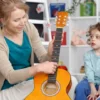![A Magical Day at Murfreesboro Day School: What Makes It a Top Choice for Early Childhood Education Introduction: A Glimpse Into Murfreesboro’s Educational Gem Murfreesboro Day School stands as a beacon of excellence in early childhood education, located in the vibrant and family-friendly community of Murfreesboro, Tennessee. […]](https://dayschools.org/murfreesboro/wp-content/uploads/sites/3/2025/05/Murfreesboro-Day-School-3.webp)
Table of Contents
Introduction: A Glimpse Into Murfreesboro’s Educational Gem
Murfreesboro Day School stands as a beacon of excellence in early childhood education, located in the vibrant and family-friendly community of Murfreesboro, Tennessee. With its thoughtfully designed environment and child-centered approach, the school has cultivated a reputation for nurturing both the intellectual and emotional growth of young learners. This is not a traditional daycare—Murfreesboro Day School functions as a dynamic ecosystem where learning is joyful, discovery is daily, and each child is celebrated as an individual.
From the moment families step onto the campus of Murfreesboro Day School, there is an undeniable sense of purpose and warmth. The atmosphere is calm yet vibrant, marked by the laughter of children, the hum of engaging activities, and the presence of educators who truly love what they do. Mornings begin with personal greetings and reassuring smiles, setting a tone of safety, respect, and enthusiasm for the day ahead. This gentle, welcoming ritual forms a foundation of trust, essential for young children as they take their first steps into structured learning environments.
What sets Murfreesboro Day School apart is its deliberate balance of structure and freedom. While daily routines provide stability and predictability, children are also given ample space to express themselves, ask questions, and explore their interests organically. This dual focus ensures that every child feels seen and supported, not only as a student but as a whole person. In this environment, learning doesn’t feel imposed—it feels like an adventure waiting to unfold.
The Power of Play-Based Learning
At Murfreesboro Day School, the philosophy is clear: play is not just important—it is essential. The school’s curriculum is designed around the belief that young children learn best through hands-on, self-directed experiences. Rather than sitting at desks memorizing facts, students at Murfreesboro Day School are active participants in their own learning journeys. They build, imagine, create, and collaborate—developing not only academic skills but also critical thinking, communication, and self-regulation in the process.
Each classroom at Murfreesboro Day School is an incubator for exploration. Learning centers are stocked with open-ended materials—blocks, sensory tables, dramatic play areas, science kits, and art supplies—that serve as catalysts for inquiry and innovation. Teachers act as facilitators, observing interests and guiding children toward deeper engagement. Whether a child is constructing a bridge with wooden planks or role-playing as a veterinarian, they are learning how to problem-solve, experiment, and express ideas through action. This immersive approach fosters cognitive development far more powerfully than rote instruction.
The benefits of this methodology extend well beyond academics. By anchoring learning in play, Murfreesboro Day School nurtures a genuine love of learning—a trait that will serve students for life. Children become curious, confident learners who approach challenges with creativity and resilience. They associate school with joy, not pressure, and are more likely to take intellectual risks because they feel secure in their environment. In essence, Murfreesboro Day School turns everyday play into extraordinary growth.

Child-Centered Philosophy: Fostering Individual Growth
Murfreesboro Day School embraces a deeply child-centered philosophy, one that prioritizes each child’s unique developmental journey over rigid, uniform standards. This approach ensures that every student is met where they are, both emotionally and intellectually. At Murfreesboro Day School, educators observe children closely, using their insights to create personalized experiences that cater to individual strengths, interests, and learning styles. Rather than imposing a predetermined pace or path, the school nurtures growth organically, allowing each child to blossom on their own timeline.
This individualized attention is evident in the way classrooms are structured and how daily activities are framed. Small-group interactions and open-ended tasks encourage children to take initiative, make choices, and discover their preferences. For instance, one child may gravitate toward storytelling and dramatic play, while another may find joy in constructing elaborate towers or investigating bugs in the outdoor learning area. At Murfreesboro Day School, these inclinations aren’t just acknowledged—they’re celebrated and used as springboards for deeper learning. The curriculum is flexible and responsive, empowering children to become confident decision-makers in their own education.
This child-centered model speaks directly to the questions parents are actively researching online: “How do I know if a preschool will meet my child’s needs?” or “What are the benefits of individualized learning in early childhood?” Murfreesboro Day School provides a compelling answer. It fosters autonomy, nurtures self-esteem, and equips children with a strong sense of identity—all crucial ingredients for lifelong success. In short, it’s a place where children don’t just learn—they thrive.
Expert Educators with a Passion for Early Learning
One of the most defining attributes of Murfreesboro Day School is its exceptional team of educators. These professionals bring a unique combination of academic expertise, emotional intelligence, and genuine passion for early childhood education. Each teacher is not only well-versed in pedagogical theory but also deeply committed to forming meaningful relationships with their students. At Murfreesboro Day School, teaching is more than a job—it is a vocation. This commitment creates a classroom atmosphere where children feel secure, supported, and motivated to explore.
Teachers at Murfreesboro Day School receive ongoing professional development in current best practices, including emergent curriculum design, socio-emotional learning frameworks, and inclusive education strategies. Their ability to adapt, reflect, and innovate ensures that instruction remains relevant and engaging. Equally important, educators model behaviors such as empathy, curiosity, and collaboration—skills they hope to instill in their students. Through careful observation and intentional interaction, they guide children not by directing, but by inspiring.
For parents researching “What qualifications should preschool teachers have?” or “Why does teacher experience matter in early education?”, Murfreesboro Day School offers clarity. Its teaching staff not only meets but exceeds professional standards, blending credentialed knowledge with heartfelt dedication. Families can rest assured knowing that their children are in the hands of skilled educators who see their work as a transformative responsibility—one that has a lasting impact on a child’s development and future success.
Purposefully Designed Classrooms That Inspire Curiosity
Every learning space at Murfreesboro Day School is crafted with intention, serving not just as a setting but as an active participant in the educational experience. The classrooms are thoughtfully organized to encourage autonomy, creativity, and exploration. Natural light floods in through large windows, warm tones soften the atmosphere, and child-height furniture ensures accessibility. This harmonious design encourages children to move freely, select materials independently, and interact with their environment in meaningful ways.
Learning centers throughout each room offer a rich variety of open-ended resources: art materials, natural objects, building tools, books, and sensory bins. These areas are designed to provoke inquiry and accommodate diverse learning styles. For example, a science corner might feature magnifying glasses and nature specimens, while a dramatic play area allows for storytelling and role-playing. At Murfreesboro Day School, the environment is ever-evolving—reconfigured in response to children’s questions and interests, ensuring that curiosity remains the engine of discovery.
For families searching for answers to “What should I look for in a preschool classroom?” or “How does the learning environment affect early education?”, Murfreesboro Day School demonstrates best-in-class standards. Its physical spaces promote exploration, foster independence, and support every developmental domain. In this context, classrooms cease to be static; they become dynamic landscapes where learning is both visible and vibrant—where every shelf, texture, and layout choice serves a pedagogical purpose.

Emotional Intelligence and Social Development as a Priority
At Murfreesboro Day School, emotional development holds equal footing with academic growth. The school understands that helping children identify, express, and manage their emotions lays a crucial foundation for future learning and interpersonal success. Emotional intelligence is not treated as an add-on, but as a core component of the curriculum—woven seamlessly into daily routines, classroom interactions, and guided conversations.
Teachers use intentional strategies to help children develop empathy, patience, and conflict-resolution skills. Through gentle coaching, role-playing, and story-based discussions, children learn to navigate their feelings and understand others’. Classrooms operate on a culture of respect and inclusivity, where each child’s voice matters and peer relationships are cultivated with care. By naming emotions and modeling appropriate responses, educators equip students with the language and tools to build emotional resilience.
Parents frequently ask questions like “How do preschools support social-emotional learning?” or “Why is emotional development important in early childhood?” Murfreesboro Day School provides an exemplary model. It recognizes that self-regulation, compassion, and self-awareness are not innate traits but learned skills—and it teaches them with intentionality. Children leave the program not only academically prepared but emotionally grounded, with the social fluency needed to collaborate, communicate, and thrive in any future environment.
Integration of STEAM at the Preschool Level
Murfreesboro Day School redefines what’s possible in early childhood education by seamlessly integrating STEAM—Science, Technology, Engineering, Art, and Mathematics—into the preschool experience. Far from being too advanced, these disciplines are made accessible and engaging through age-appropriate activities that foster experimentation, innovation, and inquiry. Children learn not by memorizing facts, but by asking questions, testing theories, and expressing their findings through creative mediums.
Whether it’s constructing ramps to explore gravity, using watercolors to depict natural phenomena, or programming simple robots, children engage in interdisciplinary learning that bridges play and purpose. The STEAM approach at Murfreesboro Day School encourages both divergent and convergent thinking, helping students learn how to approach problems from multiple angles. These early experiences plant the seeds of logical reasoning, scientific literacy, and artistic expression—all of which contribute to well-rounded intellectual development.
For families wondering “How is STEAM taught in preschool?” or “Why does early STEM education matter?”, Murfreesboro Day School offers a compelling answer. Its program demystifies complex concepts and empowers young learners to think like scientists and artists. More importantly, it nurtures a mindset of curiosity, perseverance, and innovation—traits that are essential for success in an increasingly complex world. By making STEAM both fun and foundational, Murfreesboro Day School positions its students to be confident creators and critical thinkers from the very beginning.
Safety, Structure, and Support for Holistic Development
At Murfreesboro Day School, creating a safe and structured environment is not simply about compliance—it is about cultivating trust and promoting whole-child development. Every measure is taken to ensure the physical, emotional, and psychological security of students. From secured entry points to meticulously maintained classrooms, safety is the silent yet powerful force behind every part of the school day. This emphasis allows children to focus on learning, exploration, and social interaction without fear or hesitation.
Structure plays a key role in nurturing a sense of stability and predictability. Routines are carefully curated to give children a consistent framework, which in turn supports emotional regulation and self-discipline. Children know what to expect, and this consistency reduces anxiety and builds confidence. Within this framework, educators provide the kind of warm, responsive support that allows students to take age-appropriate risks, ask questions freely, and trust the learning process.
Parents often ask “How do preschools provide a safe learning environment?” or “What role does structure play in early childhood development?” Murfreesboro Day School offers a clear, reassuring answer. It prioritizes a setting where safety is foundational, structure is intentional, and support is ever-present. This triad doesn’t just protect children—it empowers them. In such an environment, students thrive cognitively, socially, and emotionally, knowing they are cared for, understood, and safeguarded every step of the way.
Testimonials: What Families Say About the Experience
One of the most compelling indicators of Murfreesboro Day School’s impact is the chorus of positive testimonials from families who have experienced its programs firsthand. Parents frequently speak of the rapid and noticeable growth in their children—not only academically, but emotionally and socially. They remark on their child’s eagerness to attend school, newfound independence, and expanded vocabulary. These real-life stories provide authentic affirmation that the school delivers far beyond expectations.
Many families highlight the unmatched dedication of the teaching staff. They speak of educators who know their child’s quirks, interests, and challenges intimately, and who respond with compassion, creativity, and professionalism. Parents express gratitude for the personal connections formed—not just between teacher and child, but between staff and families. The school becomes more than an educational setting; it becomes an extension of home.
When searching for reviews or asking “Is Murfreesboro Day School a good preschool?” prospective families find powerful evidence in these heartfelt testimonials. The consistent praise for its nurturing environment, academic readiness, and commitment to emotional growth paints a vivid picture of a school that transforms early childhood education into something truly extraordinary. These voices validate what structured metrics may not fully capture—the trust, joy, and transformation that families experience every day at Murfreesboro Day School.

Strong Parent-School Partnerships
Murfreesboro Day School views the parent-school relationship as a cornerstone of effective early education. Rather than functioning in silos, educators and families collaborate to support the holistic growth of each child. This partnership is built on a foundation of transparency, mutual respect, and open communication. Parents are not merely observers—they are active participants in their child’s learning journey, engaged through consistent updates, conferences, and community events.
Teachers provide regular insight into classroom activities, developmental progress, and individual milestones. Families receive newsletters, learning portfolios, and digital updates that not only inform but invite discussion. Additionally, Murfreesboro Day School hosts workshops, volunteer opportunities, and family nights that deepen the sense of community and shared purpose. These touchpoints allow families to reinforce learning at home and foster stronger bonds with both staff and other families.
Prospective parents often search “How involved can I be in my child’s preschool?” or “What does family engagement look like in early learning centers?” Murfreesboro Day School exemplifies the answer. Its commitment to parent partnership enhances student outcomes by ensuring consistency between school and home environments. When educators and caregivers work in tandem, children benefit from a coherent, nurturing support system that validates their growth and affirms their experiences. It’s a model that respects the vital role families play in shaping confident, capable learners.





